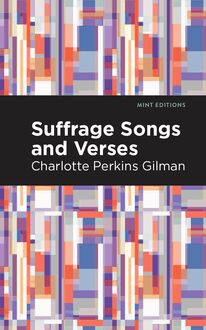-
 Univers
Univers
-
 Ebooks
Ebooks
-
 Livres audio
Livres audio
-
 Presse
Presse
-
 Podcasts
Podcasts
-
 BD
BD
-
 Documents
Documents
-
- Cours
- Révisions
- Ressources pédagogiques
- Sciences de l’éducation
- Manuels scolaires
- Langues
- Travaux de classe
- Annales de BEP
- Etudes supérieures
- Maternelle et primaire
- Fiches de lecture
- Orientation scolaire
- Méthodologie
- Corrigés de devoir
- Annales d’examens et concours
- Annales du bac
- Annales du brevet
- Rapports de stage
La lecture à portée de main
Vous pourrez modifier la taille du texte de cet ouvrage
Découvre YouScribe en t'inscrivant gratuitement
Je m'inscrisDécouvre YouScribe en t'inscrivant gratuitement
Je m'inscrisEn savoir plus
Vous pourrez modifier la taille du texte de cet ouvrage
En savoir plus

Description
A Masque of Poets (1878) is a poetry collection edited by George Parsons Lathrop. Part of Boston-based publisher Roberts Brothers’ “No Name” series, A Masque of Poets presents the works of little-known writers—including Emily Dickinson—alongside such recognized masters as Christina Rossetti and James Russell Lowell, leaving each poem anonymous to allow the reader to experience the work without thought of reputation. “Sing! Sing of what? The world is full of song; / And all the singing seems but echoed notes / Of the great masters…” Beginning with this playful introductory poem, A Masque of Poets attempts to demystify poetry by removing poets from the equation altogether. Understanding the pressures inherent to making art, especially the kind of art with such a long and storied history as poetry, this collection foregoes reputation and tradition by allowing the poems to speak for themselves, to appear anonymously so that the reader might make a clear judgment regarding each poem’s meaning and quality. Far from mere publishing gimmick, A Masque of Poets is a highly original, challenging, and rewarding collection of poems that happens to include works from some of the nineteenth century’s finest poets. By forcing the reader to trust their interpretive abilities, A Masque of Poets reinvigorates a craft whose worth was never the names of its practitioners, but the words they could produce. “Success,” the final poem before the concluding “novelette in verse” Guy Vernon, just so happens to be one of the only poems published by Emily Dickinson in her lifetime. For its importance to Dickinson scholars, as well as for its genuine originality, A Masque of Poets remains an essential contribution to the history of American literature. With a beautifully designed cover and professionally typeset manuscript, this edition of A Masque of Poets is a classic work of American literature reimagined for modern readers.
Sujets
Informations
| Publié par | Mint Editions |
| Date de parution | 28 septembre 2021 |
| Nombre de lectures | 0 |
| EAN13 | 9781513212036 |
| Langue | English |
Informations légales : prix de location à la page 0,0500€. Cette information est donnée uniquement à titre indicatif conformément à la législation en vigueur.
Extrait
A Masque of Poets
George Parsons Lathrop
A Masque of Poets was first published in 1878.
This edition published by Mint Editions 2021.
ISBN 9781513212135 | E-ISBN 9781513212036
Published by Mint Editions ®
minteditionbooks.com
Publishing Director: Jennifer Newens
Design & Production: Rachel Lopez Metzger
Project Manager: Micaela Clark
Typesetting: Westchester Publishing Services
Take this to heart, O Poets of Today,
And let it give you comfort on your way:
A single verse may live as long, God please,
As all of Shakespeare or Euripides.
C ONTENTS A S ONG BEFORE S INGING “I F ONLY WE HAD T IME TO SPARE ” L ALAGE A WAKENING B ENEDICAM D OMINO P ROVENÇAL L OVERS M Y L ADY ’ S V OICE T HROUGH A W INDOW P ANE A M OOD OF C LEOPATRA L OVE AND F ATE C ARPE D IEM Y OUTHFUL L OVE S UNSET – SONG T O A LMA T HE P INE – TREE H USBAND AND W IFE T HIS L IFE OF O URS Q UESTION AND N O A NSWER Q UATRAINS O N A PPLEDORE J ASPER O AKES S TARLIGHT T HE B UNCH OF W ILD F LOWERS Y ACHTING A Q UANDARY D ON ’ T O VERDO IT L OVE ’ S D AY G ARDEN – PERIL A W OMAN ’ S D EATH W OUND A L OVER ’ S T ESTS H ER W ORD OF R EPROACH F ORGIVEN W E T WAIN A F ALLEN H OUSE T HE W ANDERER A T T WILIGHT T HE M ARSHES OF G LYNN B ALLAD OF THE W ICKED N EPHEW T HE A NGLER T HE R EBEL F LOWER T HE B RIDE OF W AR F ROM H ERZEGOVINA R UNNING THE B LOCKADE T HE R HONE C RADLE J OHN C ARMAN A P REACHER O CTOBER S UNDAY T HE U NSEEN P REACHER C HILDREN ’ S S ONG A MY M ARGARET “M Y H EART , I CANNOT STILL IT ” T HE R OBIN ’ S S ONG T HEOCRITUS M EDALLION H EADS R ED T APE I L OVE TO D INE T HE B EAU OF THE T OWN E UMENIDES E LD H ORIZON O NE H UNDRED AND O NE T HE S EARCH N OT L OST T RANSFIGURATION I MMORTAL C LOUDS P ILGRIMS A VALLON S UCCESS G UY V ERNON P ART I. T HE W EDDING J OURNEY P ART II. H OMEWARD V OYAGE P ART III. T HE F ORSAKEN B RIDE P ART IV. T HE L OST B RIDEGROOM P ART V. H USBAND AND L OVER P ART VI. S ATURN
A S ONG BEFORE S INGING
Sing! sing of what? The world is full of song;
And all the singing seems but echoed notes
Of the great masters who, when souls were strong,
Rolled sturdy p æ ans from rejoicing throats.
Or worse than echoes, schemes of tinkling sound,
The pilfered phrases of the melodist,
A bastard music, a tenth Muse discrowned,
A light bewildered in a blinding mist.
I would not dabble on the brink of power,
Shape airy nothings, dreaming of a dream,
Chime word with word, and pipe to catch the hour,
But plunge, aim-certain, in the living stream.
Give me a theme to sing in man’s behoof,
As full of purpose as my faith, O God!—
Red with our life-blood, firm in warp and woof,
A homely product of the common sod.
Or else, let silence and primeval night
Reign, as God reigned within his holy dark,
Eons on eons, till he called the light,
And the first poet wakened with the lark.
“I F ONLY WE HAD T IME TO SPARE ”
If only we had time to spare
To taste the glories of the Spring,
How good to leave this noise and glare,
And breathe the bless è d country air,
And hear the songs the wild birds sing,
If only we had time to spare!
Then you should stretch you at my feet
And read aloud, and I should sew,
And now and then our eyes might meet,
And we might murmur phrases sweet
And blissful hours would come and go
If only we had time to spare!
But as you toil, and as I pray
For happier and idler hours,
Noon follows dawn, night follows day,
I look, and lo, your locks are gray
And Winter withers up our flowers
Ere ever we have time to spare!
L ALAGE
When I have kissed the Rose upon the path
And loved her, touch to touch and eye to eye,
The joy I have of her I know she hath
For every passer by—
What right have I?
Wakes in my heart the morning of thy speech,
Sings in my soul the music of thy smile,
And thou’rt as far as Roses out of reach—
For in a little while
Will they beguile
Hearts, not my own, of other sorrowing—
Ah, and thy voice’s music, sweet and low
And gentle with all magic of the spring
Shall touch them even so—
Do I not know?
I know it well, and yet in peace I part!
I know God made the Rose, and gave to thee,
To help his whole wide world, the Rose’s heart,
Nor left thy bounty free
To pluck by me.
A WAKENING
Well—I said, it is all too true
The story told to my childish ears,
That tears were many and joys were few,
And hopeless the weight of gathering years.
I never believed a word of the tale,
And turned to the sun and rejoiced in the day,
But a blow struck home and the light grew pale
Till bitter darkness beset the way.
Oh, what is it all? (I pondered),—what
This terrible life wherein we are set
Defenceless, whether we will or not;
Where the swift years weave us a golden net
Of joys so sweet and of hopes so bright,
Only to rob us day by day,
Slowly to take from the eyes their sight,
Steal all the body’s senses away,
And deal to the soul such blows of loss
Through the hand of Death?—and there I ceased,
For a wave too bitter rolled across,
And a longing never to be appeased
Shook me with sorrow beyond all thought.
Outside I heard the spring wind sigh,
As if the pathos of life it caught,
And strove to utter it, wandering by.
When, in a moment, the door swung wide,
Sunshine and flowers and songs of birds
Swept in with you like a golden tide,
Sweetness and rapture too deep for words.
O Love, you brought to me youth and spring,
Took me by storm with a glad surprise;
And set my whole soul worshipping,
And saved my life with the look in your eyes!
And while you are left to me, no more
Can my heart be dull as a senseless clod,
While you hold me fast with those eyes so sure,
Humbly I reach for the hand of God.
B ENEDICAM D OMINO
Thank God for Life. Life is not sweet always,
Hands may be heavy-laden, heart care-full,
Unwelcome nights follow unwelcome days;
And dreams divine end in awakenings dull,
Still it is life, and life is cause for praise.
This ache, this restlessness, this quickening sting,
Prove me no torpid and inanimate thing,
Prove me of Him who is of life the spring:
I am alive,—and that is beautiful.
Thank God for Love; though Love may hurt and wound,
Though set with sharpest thorns its rose may be;
Roses are not of winter, all attuned
Must be the earth, filled with soft stir, and free
And warm ere dawns the rose upon its tree.
Fresh currents through my frozen pulses run,
My heart has tasted summer, tasted sun;
And I can thank Thee, Lord, although not one
Of all the many roses blooms for me.
Thank God for Death. Bright thing with dreary name;
We wrong with mournful flowers her pure still brow;
We heap her with reproaches and with blame:
Her sweetness and her fitness disallow
Questioning bitterly the why and how.
But calmly ’mid our clamor and surmise
She touches each in turn, and each grows wise,
Taught by the light in her mysterious eyes,—
I shall be glad, and I am thankful now.
P ROVENÇAL L OVERS
Aucassin and Nicolette
Within the garden of Beaucaire
He met her by a secret stair;—
The night was centuries ago.
Said Aucassin, “My love, my pet,
These old confessors vex me so!
They threaten all the pains of hell
Unless I give you up, ma belle”;—
Said Aucassin to Nicolette.
“Now, who should there in Heaven be
To fill your place, ma tr è s-douce mie?
To reach that spot I little care!
There all the droning priests are met;—
All the old cripples, too, are there
That unto shrines and altars cling
To filch the Peter-pence we bring”;—
Said Aucassin to Nicolette.
“There are the barefoot monks and friars
With gowns well-tattered by the briers,
The saints who lift their eyes and whine:
I like them not,—a starveling set!
Who’d care with folk like these to dine?
The other road ’twere just as well
That you and I should take, ma belle!”
Said Aucassin to Nicolette.
“To Purgatory I would go
With pleasant comrades whom we know,
Fair scholars, minstrels, lusty knights
Whose deeds the land will not forget,
The captains of a hundred fights,
True men of valor and degree:
We’ll join that gallant company,”—
Said Aucassin to Nicolette.
“There, too, are jousts and joyance rare,
And beauteous ladies debonair,
The pretty dames, the merry brides
Who with their wedded lords coquette
And have a friend or two besides,—
And all in gold and trappings gay,
With furs, and crests in vair and gray”;—
Said Aucassin to Nicolette.
“Sweet players on the cithern strings
And they who roam the world like kings
Are gathered there, so blithe and free!
Pardie! I’d join them now, my pet,
If you went also, ma douce mie!
The joys of Heaven I’d forego
To have you with me there below,”—
Said Aucassin to Nicolette.
M Y L ADY ’ S V OICE
My lady dear hath so divine a voice
That, when she speaks, all Nature must be mute,
For in this low, soul-thrilling, delicate lute,
Nature’s most sweetest harmonies rejoice,—
The very birds are hushed, in happy choice.
And when she sings, the glorious Cherubim,
And all the host of white-robed Seraphim,
And all the holy Elders, midst Heaven’s joys
Rapt with an unknown peace, to list the strain
Do cease their silvery harps, and kneel attent,
Wondering now first to know God’s smile in sound.
E’en the sad doomed forget th’ eternal pain,
While, thro’ the gates of Paradise, out-bent,
Heaven throngs to Earth, where bliss doth so abound.
T HROUGH A W INDOW P ANE
A Winter Memory
That bright December morning,
Playfully, by the pane
She lingered;—for ever blossom,
Sweet morning, in heart and brain!
With arch farewell she lingered,
Her face through the frost-bloom bright,
Smiling;—like frost-bloom vanished
That vision into the light!
For ever and ever, smiling,
Through me it steals again:
Within my soul the picture
Looks through my heart, the pane!
A M OOD OF C LEOPATRA
Au temps de Cléopâtre.… on eût fait venir six ou cinq esclaves, mâles ou femelles, et l’on aurait essayé le poison sur eux; on aurait fait ce qu
-
 Univers
Univers
-
 Ebooks
Ebooks
-
 Livres audio
Livres audio
-
 Presse
Presse
-
 Podcasts
Podcasts
-
 BD
BD
-
 Documents
Documents
-
Jeunesse
-
Littérature
-
Ressources professionnelles
-
Santé et bien-être
-
Savoirs
-
Education
-
Loisirs et hobbies
-
Art, musique et cinéma
-
Actualité et débat de société
-
Jeunesse
-
Littérature
-
Ressources professionnelles
-
Santé et bien-être
-
Savoirs
-
Education
-
Loisirs et hobbies
-
Art, musique et cinéma
-
Actualité et débat de société
-
Actualités
-
Lifestyle
-
Presse jeunesse
-
Presse professionnelle
-
Pratique
-
Presse sportive
-
Presse internationale
-
Culture & Médias
-
Action et Aventures
-
Science-fiction et Fantasy
-
Société
-
Jeunesse
-
Littérature
-
Ressources professionnelles
-
Santé et bien-être
-
Savoirs
-
Education
-
Loisirs et hobbies
-
Art, musique et cinéma
-
Actualité et débat de société
- Cours
- Révisions
- Ressources pédagogiques
- Sciences de l’éducation
- Manuels scolaires
- Langues
- Travaux de classe
- Annales de BEP
- Etudes supérieures
- Maternelle et primaire
- Fiches de lecture
- Orientation scolaire
- Méthodologie
- Corrigés de devoir
- Annales d’examens et concours
- Annales du bac
- Annales du brevet
- Rapports de stage




















